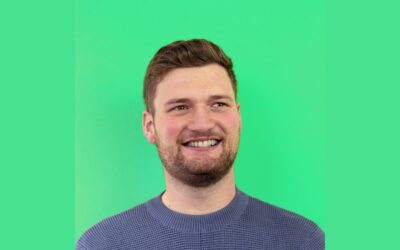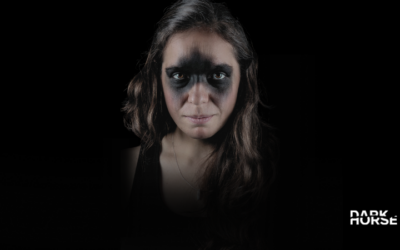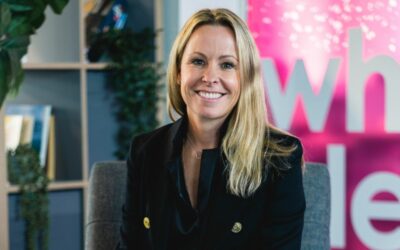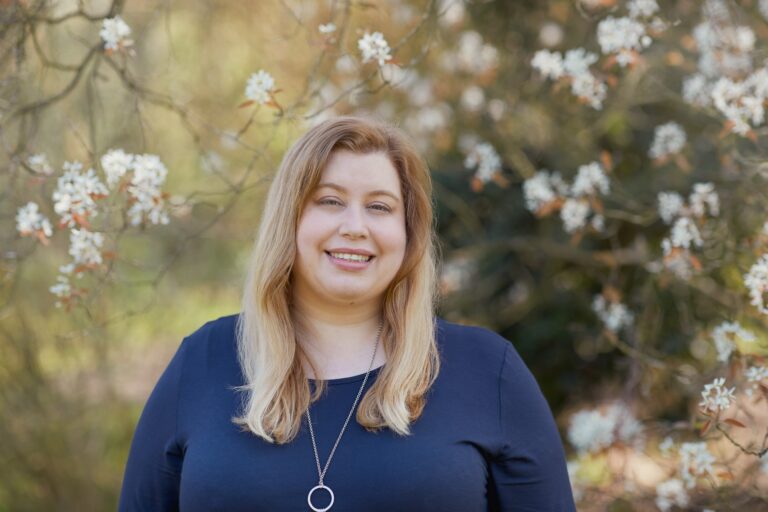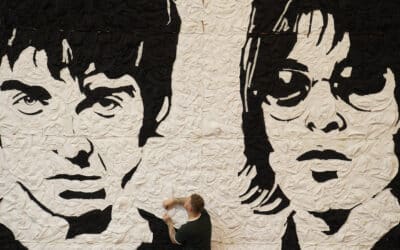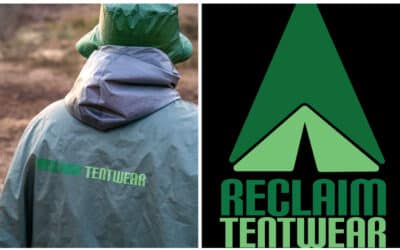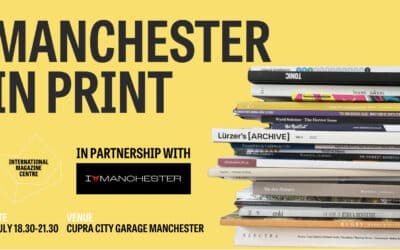Ellen Cole is a marketing, PR and social media professional.
She is the founder behind York-based agency Little Seed Group, which specialises in digital content creation, e-newsletter marketing, public relations and social media management.
Cole is also a public speaker and digital accessibility trainer, passionate about accessibility and showcasing the importance of inclusion.
She shared her career journey, tips and advice for those wanting to follow a similar pathway.
How did you first get into your industry?
I have always had an interest in marketing, PR and social media and have worked in the industry since 2010, however I grew frustrated with how inaccessible digital content was and had little to no opportunity to explore this when employed. When I became self-employed, I decided to use this opportunity to pursue my interest in online accessibility in particular when it comes to social media, email marketing and documentation accessibility.
Over the last five years, I have built meaningful relationships with other disabled people and those with differences to gain a wider understanding of how inaccessibility impacts their daily lives, attended webinars and conferences as well as test different ways to improve accessibility online. In 2020, I decided to launch myself as a public speaker and accessibility trainer to educate organisations to create change not just online but also offline to create a more accessible and fair society.
Approximately 20% of the UK population have a disability or difference and according to The Purple Pound report, have an annual spending power. On a global level this number works out as $13 trillion. Inaccessibility deters approximately 75% of disabled people and their families from buying products and services from businesses and this needs to change to further develop the economy and create a fairer society.
What do you love about your job?
I get a lot of satisfaction from working with organisations who are willing and open to change to better themselves and those they work with, however this is still the minority which I hope will change overtime.
Accessibility cannot be achieved overnight, it is always a learning process but it is incredibly rewarding, however in order for it to be done right, organisations must look to change every area of their organisational model. This includes their offline model: – providing employment opportunities for disabled people and those with differences as historically they are the most deprived in UK society in terms of securing employment – if the organisation as a physical presence then ensuring that space is fully accessible including for those with invisible disabilties – look at training for your staff team (I’d recommend the training to be done by someone with lived experience).
My specialisms are in social media accessibility, accessible documents and email marketing accessibility and what I enjoy the most is following my clients’ journey into accessibility and witnessing their knowledge and confidence grow to do better.
Who – or what – has inspired you in your career?
There are many people and organisations who have inspired me, however my journey began because of my own frustrations with digital accessibility and I was keen to turn a negative into a positive.
One area that I am continuing to improve on (although I am not quite there myself yet) is website accessibility. I learnt the basics of website accessibility from a West Yorkshire agency called KreativeInc Agency. It is run by a mother and son, who together teach organisations how to create accessible websites. They are full of passion and knowledge which is infectious and they have very aimilar values to myself. They are just wonderful people.
What are the biggest challenges about your job?
The biggest challenge is changing people’s perceptions on accessibility and educating them on why it is important. I believe every organisation should have marketing plans for disabled people and those with differences, however so many organisations still have little to no understanding on the everyday complexities of disabilties and differences.
For example, the needs of someone with a physical disability is likely to be vastly different from someone with a cognitive difference, therefore, in order to meet everyone’s needs to improve customer relations and conversion rates there needs to be difference sales and marketing models to meet their needs.
For example, one may be able to easily access the highstreet but not online whilst the other maybe able to easily online but offline which is why it is important to have these conversations and to work productively with those woth lived experiences. I don’t believe organisations go out of their way to make life difficult for disabled customers and those with differences,
I simply think it is a lack of empathy due to their lack of awareness and understanding of the needs of disabled people and those with differences. The only way, to do better is to have that conversation l as we cannot be specialists in all areas.
What skills have been the most crucial to you succeeding in your career so far?
In terms of accessibility, my social media accessibility workshops have been hugely popular. I have worked with many organisations across the UK and I am pleased that a lot of functionality is there to create better social media accessibility however the social media giants still have a way to go.
Although the social media giants have taken huge steps forward, it is also crucially important that social media managers and departments are also continuously keeping up to date with literature to ensure they are providing the best service they can.
Currently 80% of social media content is inaccessible and this figure is due to social media teams not correctly inputting content which excludes 20% of the UK population. Changes can be easily rectified which is what I do throughout my workshop which I will also be adapting into an e-learning course in 2023 so that organisations can learn about social media accessibility at a more convenient time for them.
What was your first salary and what could someone getting into the industry expect to earn nowadays?
Accessibility is a growing industry however there are very few people in the industry with lived experience. In my opinion, this is crucial as disabled people can provide additional insight that a non-disabled person may miss due to having no lived experience. As a freelancer, my rates don’t normally vary but it provides me with an additional income so that I can enjoy a good quality of life and invest a proportion of the profits made into my hobby of supporting British wild hedgehogs across Yorkshire.
What education or training would be most useful for someone looking to follow your career path?
No formal education is needed but a lot of time and patience is needed. I have four invisible differences and I was aware when I looked to explore accessibility that my own experiences weren’t enough and that I needed to build meaningful relationships and conversations with other people with varying disabilties.
This takes time, but it has helped me to better understand the wider unmet needs of our community and vice versa. As a collective, it will help us all to educate others to do better in hope that we will all have fairer and easier access to services and products and be able to live a better quality of life.
What advice would you have for someone looking to follow your path?
Research the area very carefully, develop relationships with knowledgeable people in the industry and more importantly, don’t be afraid to ask questions even if you think they might sound silly. The only way people can learn is to ask, learn and do better for a brighter future for all.

